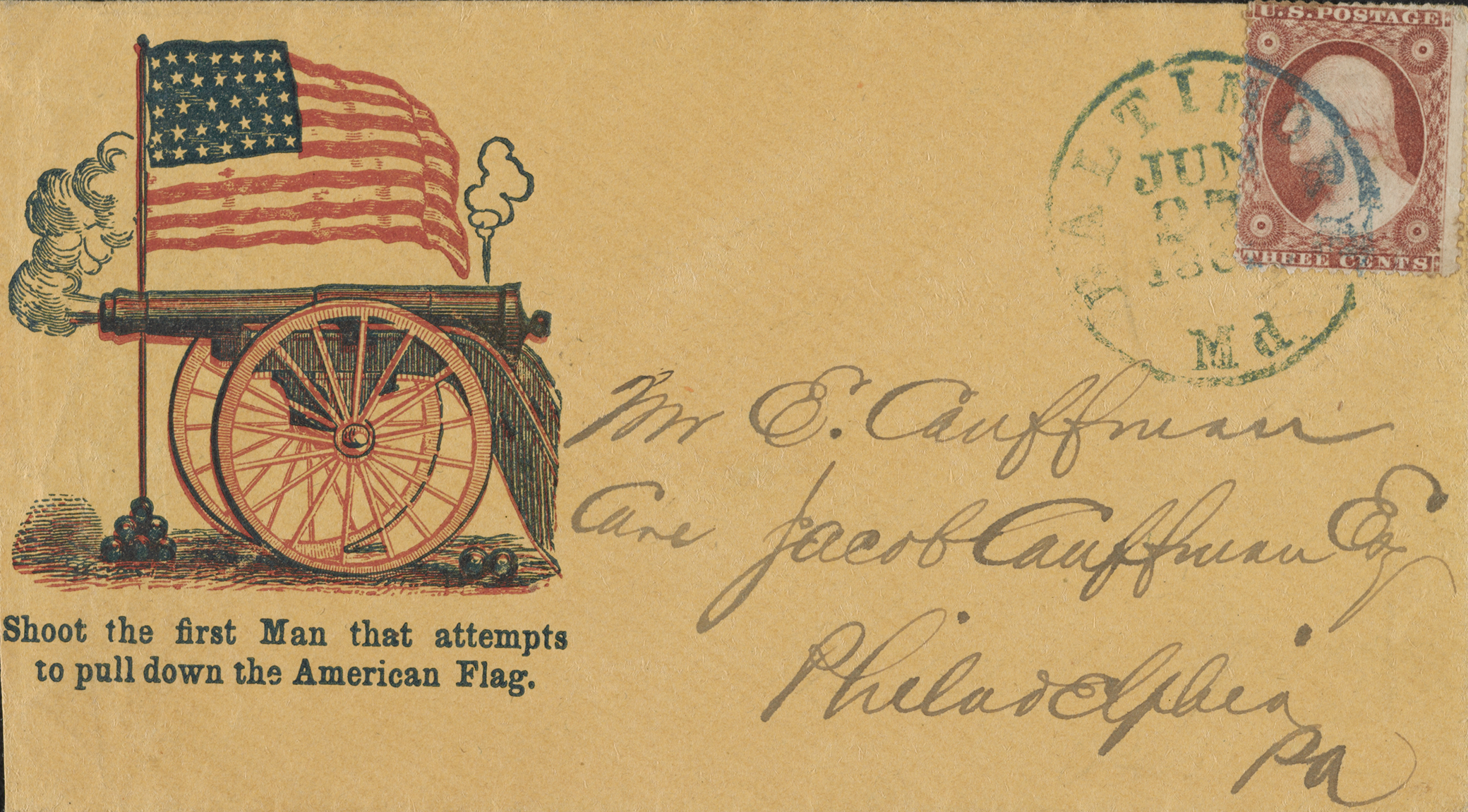
Civil War envelope, c. 1862. Library of Congress, Liljenquist Family Collection of Civil War Photographs.
• “The Unequal History of African American Gun Rights.” (Topic)
• On Graceland and America: “grotesque, and gorgeous, and ours.” (NewYorker.com)
• A Connecticut Yankee in King Arthur’s Court is “the literary equivalent of the Fourth of July—a farrago of politics, preaching, and fireworks.” (The Washington Post)
• During the AIDS epidemic, unclaimed bodies in New York City were buried on Hart Island—sequestered on a lonely edge of the already forgotten island: “I said, ‘Why are they buried separately,’ and they said, ‘Because they had AIDS,’” recalled Ms. Butcher, who is now a forensic consultant. “I said, ‘Do you think the other dead people will catch it from them?’ and they said, ‘Well, we didn’t know what to do.’” (The New York Times)
• If the next epidemic comes, America might not be ready for it: “Despite advances in antibiotics and vaccines, and the successful eradication of smallpox, Homo sapiens is still locked in the same epic battle with viruses and other pathogens that we’ve been fighting since the beginning of our history. When cities first arose, diseases laid them low, a process repeated over and over for millennia. When Europeans colonized the Americas, smallpox followed. When soldiers fought in the first global war, influenza hitched a ride, and found new opportunities in the unprecedented scale of the conflict. Down through the centuries, diseases have always excelled at exploiting flux.” (The Atlantic)
• “The Rare Women in the Rare Book Trade.” (The Paris Review Daily)
• This week in obituaries: a dancer who watched cats to choreograph Cats, a Jewish rifleman who sang on the Aachen battlefield, the cinematographer who worked on Paris, Texas, and a “prolific obituarist.”